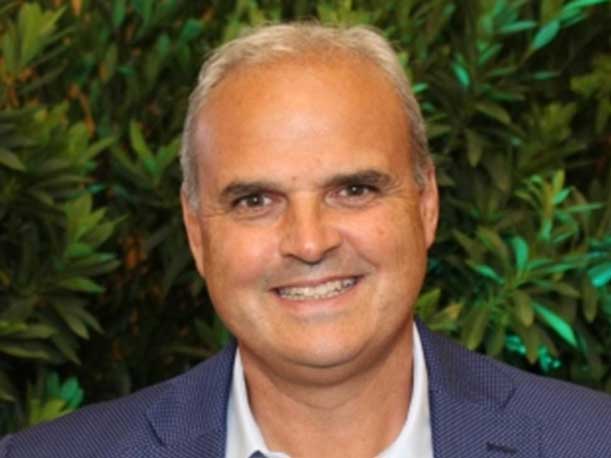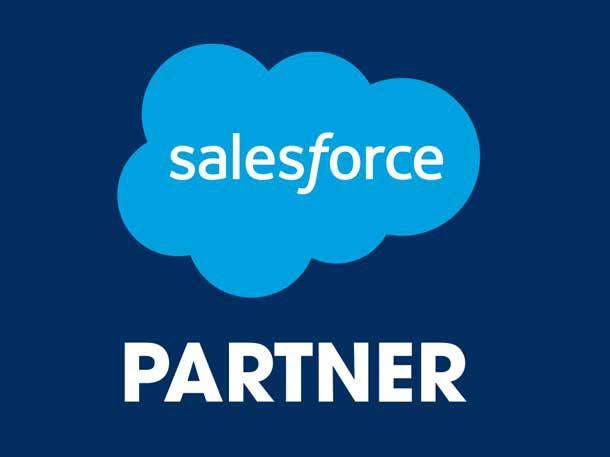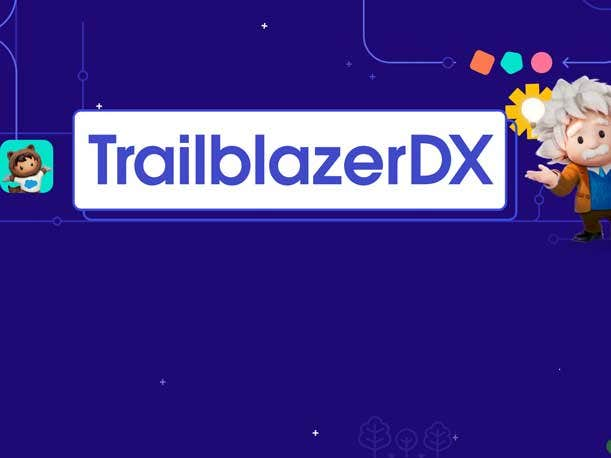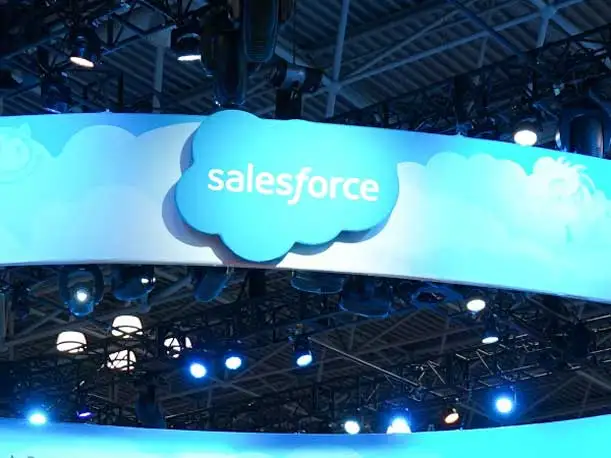Salesforce AI Push Comes With Partner Program Investment, Says Channel Chief
‘When you think about how much of [our revenue] is actually managed on a day-to-day [basis] by the partners, they’re massive custodians of the brand and customer success and lifetime value,’ says Salesforce channel chief Steve Corfield.

Steve Corfield, capping off his first year as Salesforce channel chief, is at work on what he calls “a next-generation partner experience platform” that aims to help the vendor’s solution providers as they help expand adoption of artificial intelligence products and other offerings in the Salesforce portfolio.
The San Francisco-based CRM software vendor has about 12,000 partners, Corfield told CRN, with about half of them providing consulting services.
Salesforce’s reseller business grew 60 percent year over year in 2023, Corfield said. Its outsourced service provider business grew 89 percent. And for $1 of annual contract value (ACV) for Salesforce, partners can get $6 when factoring in services and work beyond transacting the license. For a vendor that reported in March that it brought in $31.4 billion in revenue during its 2023 fiscal year—up 22 percent year over year ignoring foreign exchange—that is a lot of opportunity for partners, he said.
“When you think about how much of [our revenue] is actually managed on a day-to-day [basis] by the partners, they’re massive custodians of the brand and customer success and lifetime value,” Corfield said. “We’ve always orientated ourselves to ACV … what’s actually in the marketplace and in our broader economy is as important.”
[RELATED: Salesforce May Acquire Informatica For More Than $11B: Reports]
Salesforce Invests In Channel Program
Tim Harris, chief strategy officer with Plano, Texas-based Argano, called Salesforce a “top-tier” partner of the MSP in an interview with CRN. Argano even saw six times the bookings in December and January year over year. About 75 percent of its customers have some form of Salesforce licensing.
“We have big growth goals for Salesforce over the next couple of years,” Harris said. “Owning AI is such a driver for Salesforce. I mean, no one owns more customer data than Salesforce. So how do you not take advantage of that?”
Maximilian Schroeck, Deloitte’s global chief commercial officer for the London-based consulting giant’s Salesforce alliance, told CRN that Salesforce is a top-three alliance for the firm, with 18,000 consultants worldwide delivering more than 1,000 projects a year.
About 15,000 of those consultants hold a total of about 50,000 credentials, Schroeck said. That sort of manpower is needed for Salesforce’s data and AI offerings to land and expand with customers.
He said Salesforce’s leadership has worked with Deloitte to improve its partner engagement model. “Much has happened there to Salesforce’s credit, but also, not to sound self-serving, a little bit to our credit as well. There’s much goodness there.”
Harry Datwani, Deloitte Consulting principal and U.S. Salesforce alliance leader, told CRN that Deloitte has been busy over the last quarter signing three- to five-year-long contracts to increase return on investment in Salesforce spending plus building out Data Cloud use cases with customers to take more action on the digital information they amass.
“We were very early in getting a number of our teams globally certified and co-creating and building Data Cloud plus … our own assets and accelerators. Data Cloud plus the rest of the ecosystem. We’ve built a number of accelerators with Data Cloud and Amazon, Data Cloud and Google, as an example.”
Much of the work for Corfield and his team has been on bringing dormant partners back into the action and providing them with more resources, said Corfield, who succeeded former channel chief Tyler Prince in April 2023. Prince is now channel chief of Salesforce rival Snowflake.
Corfield—whose formal title is executive vice president and general manager of global alliances, channels and emerging products—has previously served as Salesforce’s executive vice president of industry sales and CRO for global commerce since February 2021, according to his LinkedIn account. He has been with Salesforce for about nine years, starting in 2015 as senior area vice president and head of sales for Europe, the Middle East and Africa (EMEA) for Commerce Cloud.
The vendor’s investments in AI and packaging products for smaller enterprises has created more opportunities for partners, Corfield said.
And Salesforce has invested in more enablement and training for partners to sell products throughout the vendor’s portfolio, which includes data visualization platform Tableau and integration platform MuleSoft.
A sign of Salesforce resources catching on with partners and partner excitement around AI is 17,000 AI credentials issued across 1,400 partners, Corfield said. There have been 180,000 certifications issued on Salesforce’s Trailhead online learning platform, with 225,000 credentialed individuals.
“You talk about opportunity, we’re going to get to $50 billion [in revenue] fairly quickly,” Corfield said. “We need half a million credentialed consultants because we know we’re going to be working in a $2 trillion economy with some 11 million people globally that will touch the Salesforce platform. That’s the magnitude of the opportunity. That’s what I want people excited about.”
Here’s more of what Corfield had to say to CRN.

How important are solution providers to Salesforce’s go to market?
When you think about how much of [our revenue] is actually managed on a day-to-day [basis] by the partners, they’re massive custodians of the brand and customer success and lifetime value.
We’ve always orientated ourselves to ACV … what’s actually in the marketplace and in our broader economy is as important. … We’ve done a ton of things around partner success. … How we recruit, how we on-board, how we actually nurture partners to the first dollars in ACV. How do we take the dormant partners back in. Why would they be dormant? … Every tech vendor is always talking about PRM [partner relationship management] and their ability to manage partners.
I'm genuinely looking at what the next-generation partner experience platform needs to look like. … I want to have a completely frictionless relationship with [partners]. I need [them] to have access to my product, my people, my understanding, my enablement. And [they] need to be able to get out the gate fast—particularly in this new world and this economy. … There are 22 GSI [global systems integrator] organizations that do 54 percent of the world’s systems integrations.
And guess what? We’ve orientated to those big players. We’ve also looked at the agencies, our RSIs [regional systems integrators]. [They] are as important, but that lends itself to scale and partner experience. So we really looked at how that data informs how we get to market.
Is Salesforce looking to add more partners to its ecosystem?
If I look at our competition, I know that they have more partners than we have. And I'm OK with having more partners. … We have 12,000 partners in total, 6,000 in consulting. … What does it mean to get to 10,000? … That’s OK, but those things have to come with a meaningful partner experience platform. We have to be able to on-board them, nurture them. And actually, if I’ve got dormant partners, how many do I need?
So what I’ve actually discovered is I’m less concerned about how many I have but where they are and what skills they have. We’ve actually done a global heat map of our partner ecosystem and said, ‘Yes, we’ll go to 10,000. But actually, I need LatAm [Latin America]. I need ASEAN [Southeast Asia]. I need APAC [Asia-Pacific].’ …We’ve been a bit more targeted.
But if we can make that really frictionless, I think there will naturally be an on-boarding of partners. I will say with the new products around AI, we are seeing an awful lot more market entrants.
Whereas people probably thought that [there were] barriers to coming in, now they’ve got people with specific IP around an industry set—that’s a great entry point to become a Salesforce partner now.

What’s your message to solution providers looking to start a Salesforce practice or maybe deepen an existing one?
We’re now the biggest enterprise software company in the world. The landscape is huge. You look at the next-generation products that are coming through—AI lending itself to data strategy, lending itself to industry expertise, lending itself to a multitude of use cases.
It is different from, ‘I'm going to install CRM. Or have a Service or a Marketing Cloud or a Commerce [Cloud] business.’
We still need that. I mean, don’t forget … we’re still growing at a good clip when you think about a $35 billion revenue base. So there’s plenty of opportunity.
The other thing I would say is if you look at where we have played historically, we’ve always been that enterprise company.
I would say, if you look at some of our biggest growth areas now … SMB. Midmarket. General business. It’s not a historical place when we first cut out that actually we serviced. But now we have products that service … from SMB right the way through to the enterprise.
That’s an untapped market. If you're an RSI or you’re going to be a small player coming in, that just gives you a multitude of thousands of thousands of whitespace customers to go at.
And then I look at things like our reseller channel. Our reseller business grew at 60 percent last year. It’s currently in its infancy. … And then our outsourced service provider business as well grew at 29 percent [in the 2024 fiscal year].
So there’s lots of pockets of growth areas for us where we’re just scratching the surface. … For every $1 of ACV we sell, there is about $6 on the table for the partners.
When I actually look at that across the size of people’s real Salesforce practices, I think it’s actually nearly 10X because we were only measuring it from the point of sale of the software license. But when you think about the lifetime value and the pull-through of the product and other services and things, suddenly we’re at 10X.
What’s fueling that growth?
It’s a balance across the portfolio that’s driving that growth. You’re seeing us grow in places like LatAm and India and public sector and emerging markets. … The AI revolution is amazing and yes, Data Cloud is the fastest-growing cloud in the history of the company.
But it’s pretty much our core portfolio that certainly, in the near term, is going to be the thing that underpins that revenue growth.
Plus we have a big cRPO [current remaining performance obligation] as well, which is obviously a bow wave coming in in subscription revenues.
We have executed very well. We still see plenty of runway in sales, service, commerce, marketing. Tableau has found its feet … MuleSoft, and actually when you think about the SAP space and that integration area—one of the things we are looking at … is how do we put a program around SAP with MuleSoft, which is a very different proposition for Salesforce. … It’s a balance across the existing portfolio.
Obviously, we are expecting to springboard into all of the new products, the Einstein Copilots, the Data Clouds, the everything GPT.

What’s the opportunity for Salesforce solution providers in AI?
We own [the] ‘customer,’ to put it bluntly. We own that master data layer that sits between customers. And then if we can service that in a safe and secure way, there’s massive benefit.
And if you look at the Snowflakes [and] the Databricks, a very large percentage of the data that sits in those areas is Salesforce.
So there’s the opportunity. The bits that are really exciting our partners though are … how do we unlock the data strategy for the customers so that they can have their data served in a consistent fashion.
We’d love Data Cloud to be the air traffic control, the bit that sits on top, 100 percent. But the other bit that is really interesting for the partners and something that we are talking to them about is any business line can have over 100 use cases.
Now, if I’m a CIO or CEO, I’ve got … my standard rate of business change. I’m probably still trying to transform to digital. … And now I’ve got this thing called AI. I’m being hit at by every vendor in the world to say, ‘What are you doing with AI? What are you doing with strategy?’
What I’m working with the partners [on is] … how do we create this factory as an accelerant? So we take these use cases and then we’re able to validate.
And the faster we can validate and prove, the quicker we can get the customers to adopt. And the really smart partners are going to go, ‘We’re so confident on the ROI of that use case, maybe we’ll jump into a revenue share with you. We’ll do it and we’ll prove it.’ That will be the market accelerant. … We have CRM, AI, data and then the trust layer, and we own [the] customer. That’s just massive. That is the differentiator.
Now, for us, it’s turning those use cases into truly validated ROI. And then pushing forward … it’s not necessarily going to swing the dial straight away. But as we get into it six, 12 months from now, whenever, I will be very surprised anybody not sitting on Salesforce with the customer data isn’t sitting there with an instance of Data Cloud.
What’s your message to existing Salesforce partners?
We’ve been driving these partner insight maps within our major accounts … they are highly complex enterprise accounts that have programs or pillars. … And if you overlay that with what we’ve actually sold that customer and whether or not they’re fully penetrated or they’re behind on what we brought them, we should be able to then say to the partner community, ‘Actually, we’re underindexed in these areas. Help us get some adoption.’
One of the big things right now we’re focusing on, as our company’s gotten bigger, a single digit of the attrition saved is a massive number now. You start saving an extra 1 percent of attrition, and you’re talking millions of dollars. … The second piece that we’re doing as well is we’re taking our own customer success scores that CSG [Salesforce Customer Success Group] has and we’re running that through the partners.
And then the partners love that because they hold themselves in high regard as to the way they deliver, the way that they work, but they want that as a marketing tool.
They want to be saying, ‘My customer success score with Salesforce is 9.2. And that means I’m best in class.’ There’s a ton of work across that ecosystem because … I’ve got partners who have $1 billion Salesforce practices that may never do ACV. And they are critical to us.
So our engagement with them comes through the customer success score piece rather than focusing on opportunity management and lead generation. … We’ve had lots of product enablement; we are now swinging to sales enablement as well. We want our partners selling the way that we sell. Also, we want them selling and having product enablement at the same speed we have it.
So the same content, the same deliverable, everything that we get, they get. And if we can’t push some of our assets to that side of the firewall, what we’re looking to do is curate it such that they still have access to decks and demos.

Is there a timeline for partners to keep in mind for what you are talking about?
Partner success, we’ve completely built that business … One of the things we would like the parents to get excited about is we have the credentials ready for AI.
We’ve got about 20,000 AI creds [credentials] across 1,400 partners. There have been 180,000 Trailhead [Salesforce’s online learning platform] certifications [net-new in the 2024 fiscal year], 273,000 credentialed individuals.
You talk about opportunity—we’re going to get to $50 billion [in revenue] fairly quickly. … We need half a million credentialed consultants because we know we’re going to be working in a $2 trillion economy with some 11 million people globally that will touch the Salesforce platform.
That’s the magnitude of the opportunity. That’s what I want people excited about.
And then, we’re looking hard at what are those programs that allow people to say, ‘I want to be a Salesforce partner.’ … I don’t want it to be easy as in anybody can do it.
Because we have to keep the quality bar super high because customer success is everything. … But once you’re in and we’ve on-boarded you, then there has to be a fantastic nurturing experience to get you to your first dollars of ACV.
And we track your success. … You invest, we invest. We’ve got this mantra of ‘trust easy.’ We need to be fully trusted. We have to be easy to do business with. It equals growth for both parties.